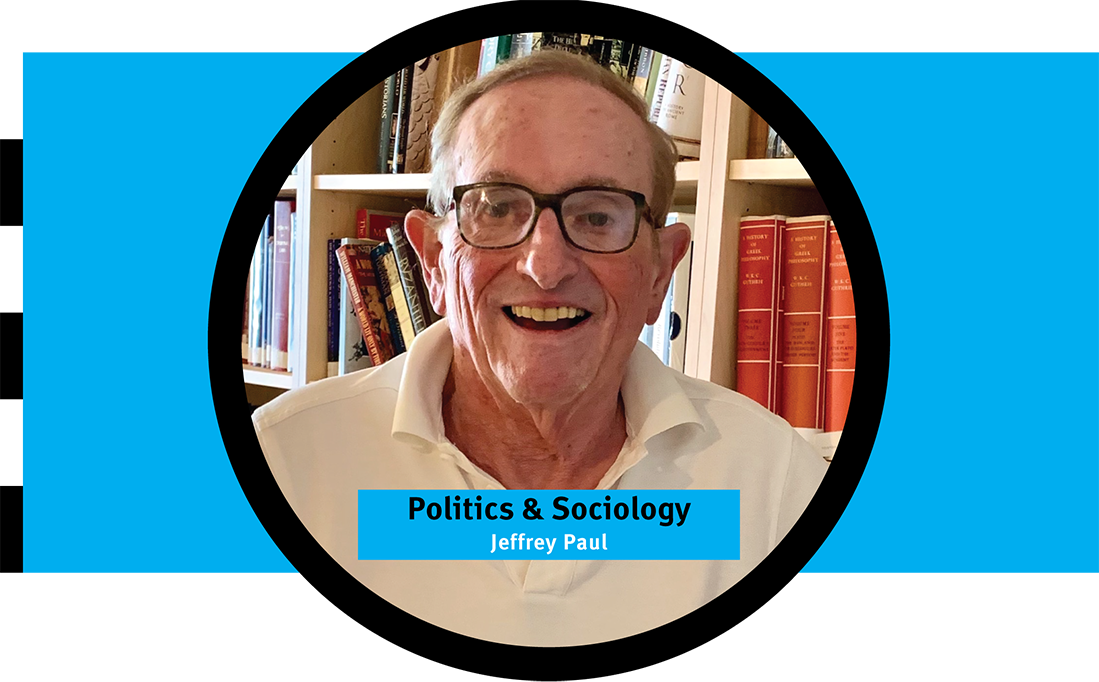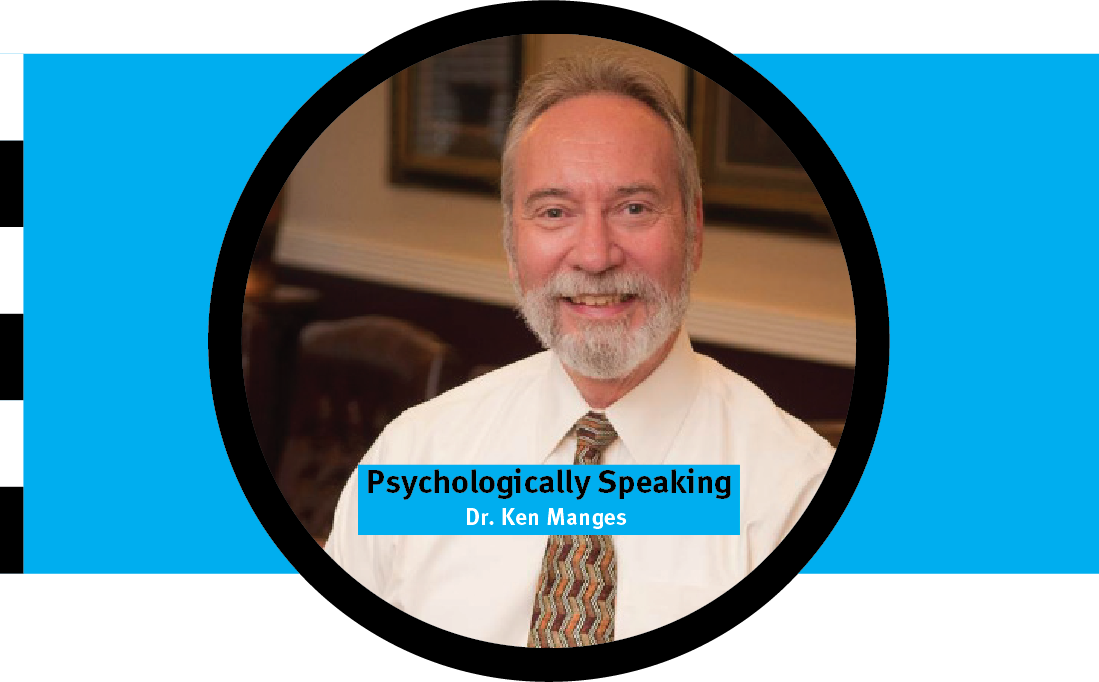Antisemitism seems to have become de rigueur for many of America’s most eminent universities. Harvard, Yale, Cornell, Penn, UCLA, and Berkeley are a small sample of the institutions where the prejudices of pre-Nazi German universities have emerged. Yale seems unable to condemn the murder of Jews on October 7 without conjoining it to a condemnation of Islamophobia. But there is nothing phobic about grasping the threat of radical Shiite Islam. Indeed, this is like insisting that all condemnations of the Holocaust be accompanied by a condemnation of Germanophobia.
In a recent Wall Street Journal column, Yale students Netanel Crispe and Sahar Tartak detailed the harassment Jews must endure at their institution, including physical violence. From the November 1941 alliance between the Grand Mufti of Jerusalem and Adolf Hitler to the present alliance between Hamas and American and European leftists, Jews have been the repeated targets of Shiite Islamic violence. But unlike the condemnation of the Holocaust, American universities have been reticent to condemn acts of anti-Semitism resulting in the intimidation of Jews here or their murder in Israel. Why?
Dara Horn, the author of People Love Dead Jews: Reports from a Haunted Present, tells us in a September essay in the Wall Street Journal that “When I spoke at a summit for the Harvard Jewish Alumni Alliance last week, I had to be escorted by an armed guard.” Why does Harvard associate itself with terrorists? Horn’s answer: “Academia doesn’t seem to attract many courageous people. The tenure process encourages conformity, and students also perform to conform.” But Horn does not specify the views with which faculty are encouraged to conform to, and how those views came to be dominant at Harvard.
Are anti-Semitic views prevalent at Michigan’s Hillsdale College, the University of Dallas, or California’s Pepperdine University? If not, why not? Why is the political culture of so many universities compliant with the anti-Semitic violence of the Middle Eastern Shiite theocracies? And what accounts for the few that are not? If tertiary education is dominated by such scurrilous views, why must taxpayers fund these institutions through the federal Department of Education? Unless these questions are confronted, and answered, and action is taken, Jews cannot continue to complain if they remain compliant with the present academic culture.
The sad story of the transformation of American universities from ones espousing the principles of the Founders and Abraham Lincoln to those embraced by the autocratic mentors of both today’s American and yesterday’s Nazi professoriate begins with a blunder made collaboratively — and innocently — by university and college presidents in the 1870s. Wanting to upgrade their institutions from merely pedagogical schools into research universities that could award doctoral degrees, they decided to emulate the German universities, which were then the most prestigious in the world. To do so they decided to hire only Americans with German doctorates or with sufficient graduate training in Germany to have earned one there. In mathematics, physics, the natural sciences, and medicine this dramatically improved the quality of American higher education. However, in philosophy, politics, history, sociology, and economics it was a moral and political disaster. America had managed to import the very political ideology it had defeated in the Civil War.
The United States was founded on a historically unique philosophy that all members of the human species have a right of self-ownership and liberty, as well as a right to what they create through their efforts, i.e., their property. These rights may not be violated by other persons or by governments. Indeed, the sole legitimate reason for the creation of governments is to protect individuals’ pre-legal rights. Governments that violate or fail to protect these rights (like the pre-Civil War Confederacy) are illegitimate and may be overthrown. The constitutional separation of powers and the Bill of Rights were designed to protect these three pre-legal natural rights.
In Germany, however, the regnant political philosophy, as espoused by leading academics from Johann Gottlieb Fichte to Georg Wilhelm Friedrich Hegel to Heinrich von Treitschke was that nations are like organisms and individuals are their cellular components — with no rights, only duties to sustain the organism. The particular duties are to be assigned by the organism’s brain comprised of university faculty, their students in the state bureaucracy, and the prince. Many of the academic progenitors of these views — such as Fichte and the economist Adolf Wagner — were celebrated by the Nazis as the originators of their views. And their German students, men such as Werner Sombart, Martin Heidegger, and Carl Schmitt led the Nazi professoriate. All were committed to the absolute power of the state and all were rabid anti-Semites.
In America, the first and second generation of faculty trained in the German tradition — Frank Goodnow, E. R. A. Seligman, Richard T. Ely, Charles Beard, Herbert Baxter Adams, John R. Commons, Edward Ross, Albion Small, Woodrow Wilson, Westel Willoughby, John Dewey, Charles Merriam, Edmund James, and Simon N. Patten monopolized undergraduate and graduate education and hired ideological replicas of themselves as faculty. They rejected the Founders’ views that human beings have natural rights while presenting themselves as an elite with the privileges of assigning duties to the citizenry. They sought to create the instruments for realizing their autocratic ambitions.
Goodnow and Wilson, for example, argued for a fourth branch of government — what we call today the Administrative State — which could effectively legislate (create rules) without being elected — thus ripping apart the U.S. Constitution, which gave Congress the sole power to legislate. And E. R. A. Seligman argued for a constitutional amendment that would enable income to be taxed. This represented another fateful change. Workers, who depend upon earned income, not wealth, to sustain themselves, would then become dependent upon state largess after their income is reduced by taxation. Again, both a fourth branch of government and the income tax had German precedents in late 19th century Germany under Otto von Bismarck, the first Chancellor of the German Empire.
In Germany, these academics would have been called “State Socialists.” In America, that name would have endangered their employment. And the Americans trained in Germany borrowed a name from that country’s Progress Party and called themselves “Progressives.” They explained that the Founders mistakenly assumed that ethical and political principles do not evolve. Progressives claimed they did, and experts, like themselves, could correctly identify the trajectory of their evolution. There are no pre-legal rights or constitutional rights that are permanent; instead, rights and duties evolve and are recognized by academic elites who then prescribe that political institutions change to accommodate their evolution.
After the First World War, “Progressivism’s” odious association with Germany caused its proponents to search for an inoffensive substitute term to describe themselves politically. They chose one whose original English meaning was the antithesis of their philosophy — “Liberalism.” In England, that term, which came into political usage in the 1830s, stood for those who believed there was a pre-legal right to one’s liberty, to one’s property, and to its free exchange. Progressives used it to mean its antithesis, but the good associations of its original meaning would give them political cover. Complaints about this appropriation came from many places — the New York Times, Columbia University president Nicholas Murray Butler, as well as Dartmouth College’s president Ernest Martin Hopkins. Others followed. But it was too late.
When Franklin Delano Roosevelt became President in 1933, he adopted the term to describe the New Deal’s academic advisers, called the Brain Trust, from Columbia University — Raymond Moley, Adolph Berle, and Rexford Guy Tugwell. And so the new definition of liberal was autocratic rule by elite experts who could call for the replacement of the natural rights of America’s founding with a collection of duties and privileges assigned by an intellectual nobility, i.e., themselves. Americans traditionally understood that they had constitutionally protected rights. Under the new dispensation, the government (elected and unelected) could instead supersede these rights and assign citizens with special privileges and duties. The pretext for this could be anything chosen by the “experts” — workers, race, the climate, the environment, the poor—the list is probably endless. President Roosevelt’s Supreme Court appointments reflected this view as did his failed court-packing scheme currently being revived by the liberal opponents of America’s original “Classical Natural Rights Liberalism.”
The Democratic Party has continued to reveal itself as the principal vehicle for those with autocratic appetites and dictatorial ambitions, especially fear of free speech and dissident opinions. John Kerry, echoing many academic lawyers, has attacked the “First Amendment as a major block” to stamping out “disinformation” in the United States. Speaking to the World Economic Forum, Kerry said if Democrats win the 2024 election they can change the First Amendment: “But look, if people only go to one source, and the source they go to is sick, and you know, has an agenda and they’re putting out disinformation, our First Amendment stands as a major block to be able to just, you know, hammer it out of existence.”
He was merely echoing what many of today’s liberal academics have been saying for some time. Interviewed by the Harvard Gazette in October 2020 Harvard law professor Michael Klarman laid out an agenda for Democrats to follow should they win the White House and both houses of Congress. They should enact what he called “Democracy-entrenching legislation” that would ensure that Republicans could never win another election unless they move left. Klarman was essentially echoing New York Times columnist Thomas Friedman’s 2009 proposal that the United States emulate China and give the Democrats one-party rule.
Clearly, the Democratic agenda for acquiring one-party rule has been on full display during the Biden-Harris administration. Fostering the immigration of 11 million illegals to build a permanent majority for the party that welcomed them is its strategy to obtain one-party rule. What other reason could explain their policy?
Moreover, the Democratic Party has used the powers of government during the Biden-Harris administration to repeatedly violate freedom of speech for those who disagree with them. A few months ago, in a letter to House Judiciary Chair Jim Jordan, Meta CEO Mark Zuckerberg said that he regrets not being more outspoken about “government pressure” from the Biden administration to “censor” content on Meta’s platforms. He said Meta was pressured to censor content related to the COVID-19 pandemic in 2021. The FBI also warned Meta about potential disinformation about the Biden family’s financial relationship with the Ukrainian energy company Burisma, of which Hunter Biden was a board member. In response, Meta censored the New York Post story about the Hunter laptop which recorded in detail the family’s financial relationships with various foreign entities. The laptop, of course, has been the source of accurate information, not Russian disinformation.
Finally, after he purchased Twitter, Elon Musk released a company file describing its collaboration with the many government agencies that pressured Twitter to censor content they felt could politically wound the Biden-Harris administration. Twitter joined Meta in censoring the information on Hunter’s laptop. Democratic Senator Chris Coons and Congressman Adam Schiff warned internet companies that they must expand their censorship efforts or suffer congressional investigation. And the Twitter files released by Musk showed that the company repeatedly censored content that offended the Biden-Harris administration. The FBI was the first of several agencies that coerced Twitter to censor, followed by the CIA, the DOJ, the DHS, and the Office of the Director of National Intelligence. A steady stream of suspensions and deletions followed. The administration also helped to partially fund the Global Disinformation Index with $300 million which named as the “riskiest” of sites those that were popular with libertarians, conservatives, and independents.
All of this had an enormous impact on public discussion. Little wonder that the media and universities, both of which are dominated by today’s liberals, have been less censorious of anti-Semitism and anti-Israelism than they have of libertarian and pro-Israel rhetoric. And how indifferent and uncritical have they been to the ending of sanctions of the Chinese purchases of Iranian oil which fund Iran’s nuclear program and funded October 7?
Israel has joined libertarians, classical natural rights liberals, and conservatives as threats to the autocratic preferences of American liberal elites who effectively control the universities, the media, and the Democratic Party. Only the Republican Party, Fox News, and Donald Trump stand in their way.
Jonah Goldberg’s Liberal Fascism was published in 2007. Seventeen years later my own book, Winning America’s Second Civil War, followed it, not merely echoing Goldberg’s findings about the common characteristics of fascism, Nazism, and contemporary liberalism but identifying precisely their shared parentage. American Jews need to recognize this identity now.
Jews will have to choose who has been the greater friend to free speech, Israel’s continued existence, and the opponents of anti-Semitism this November. Let us hope they make the wisest choice.





